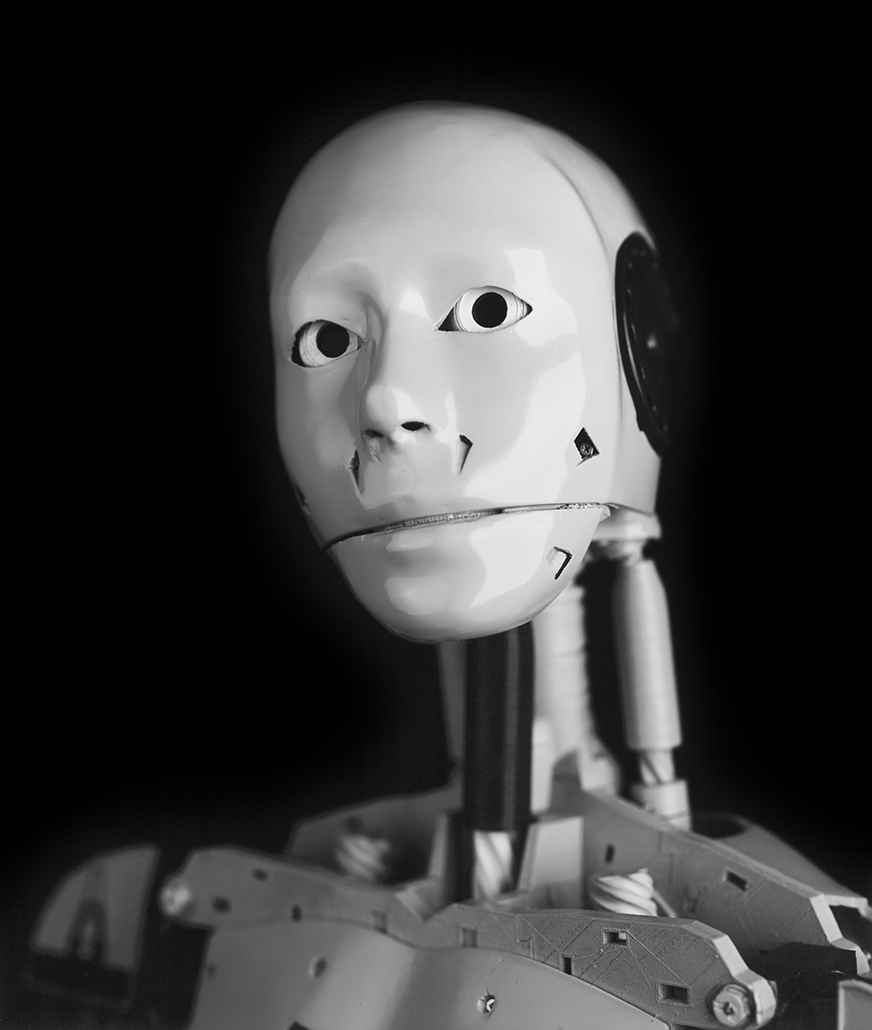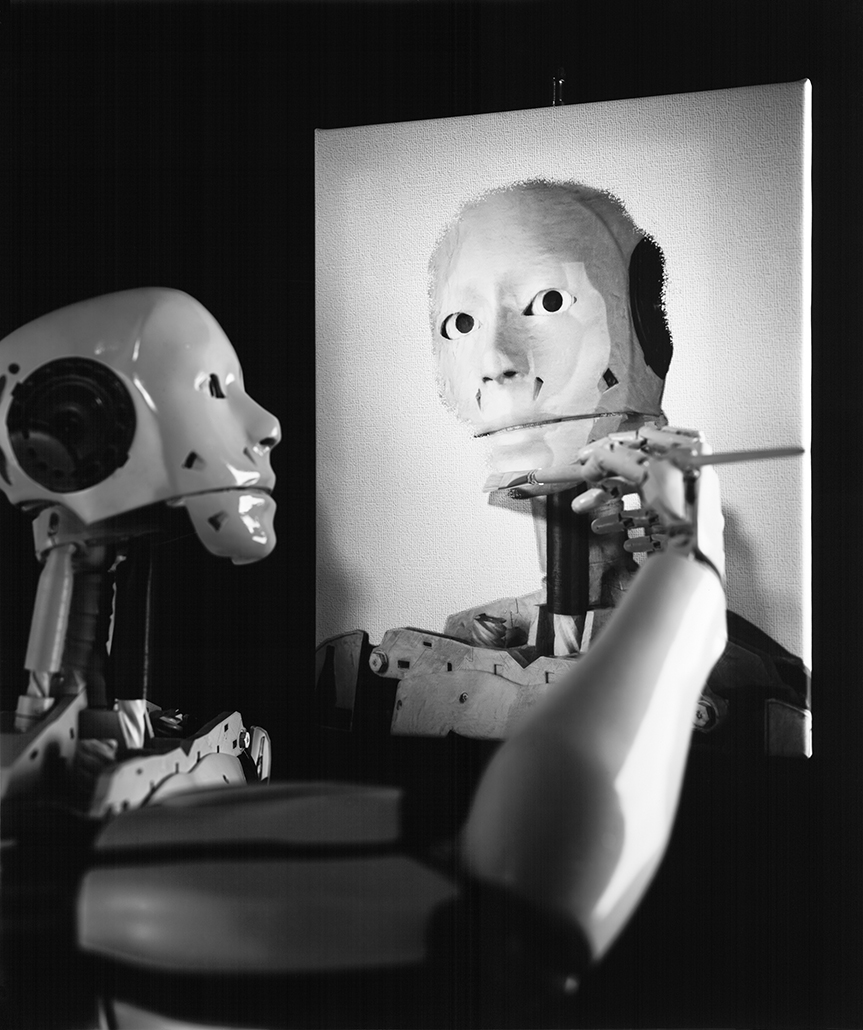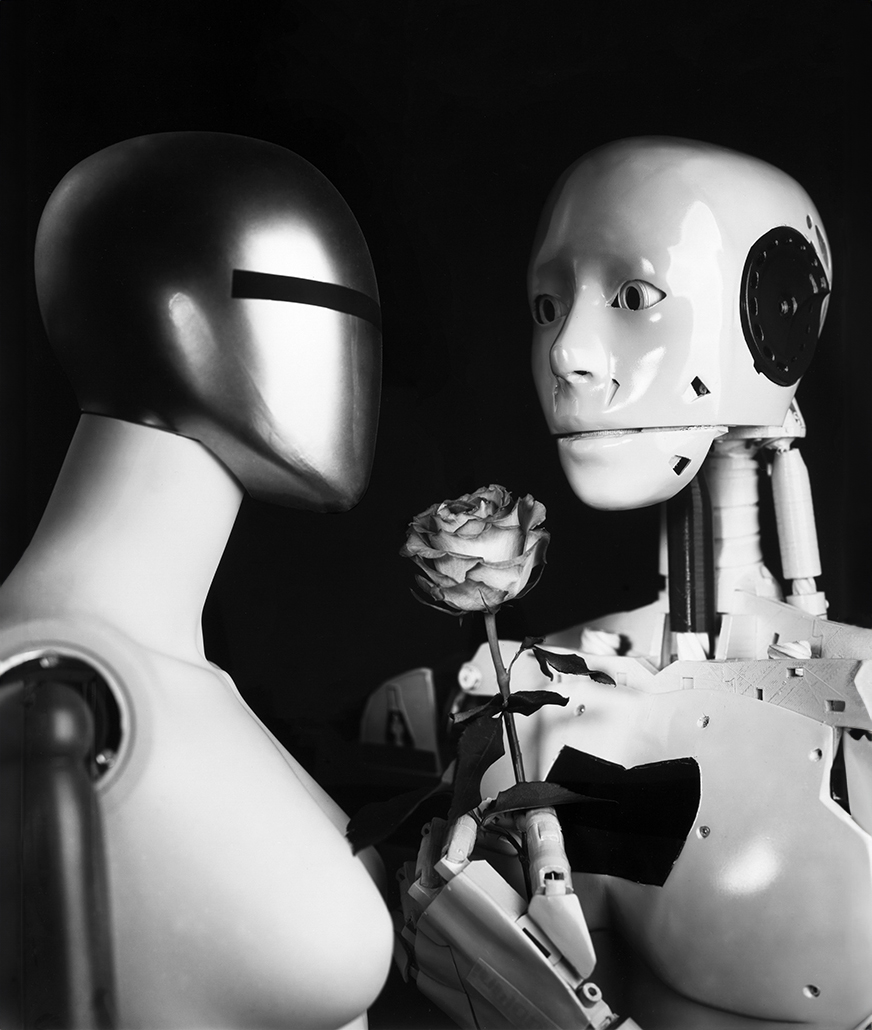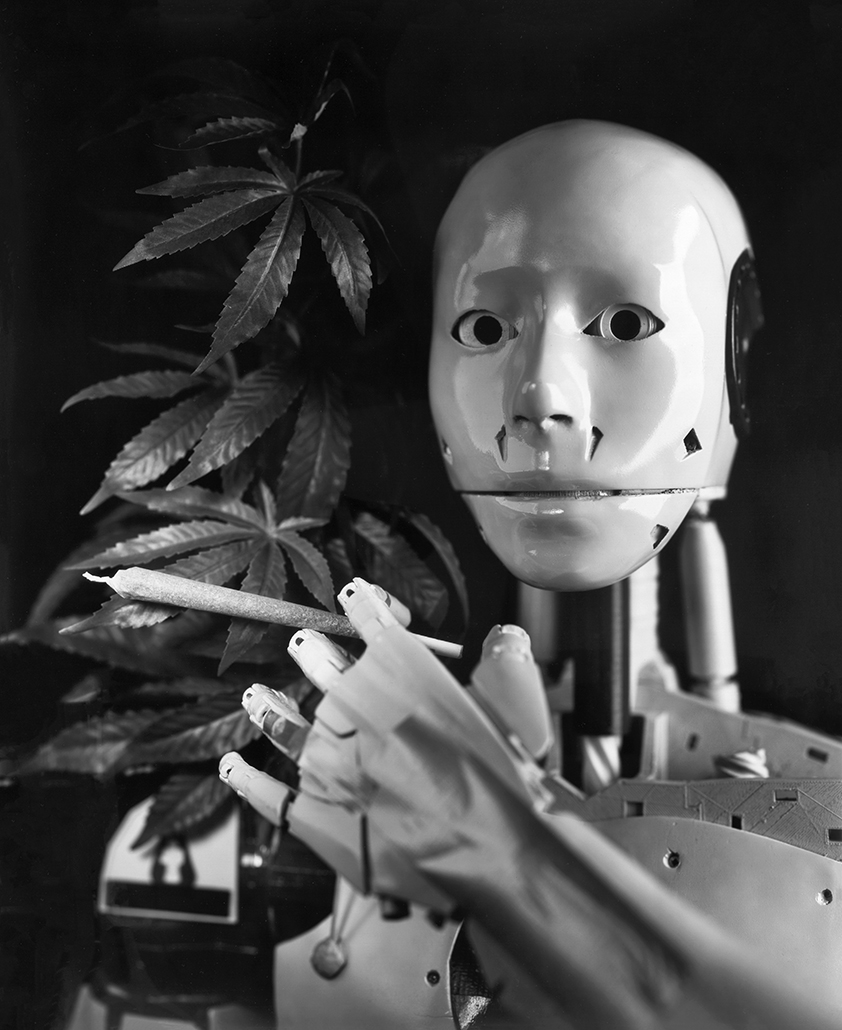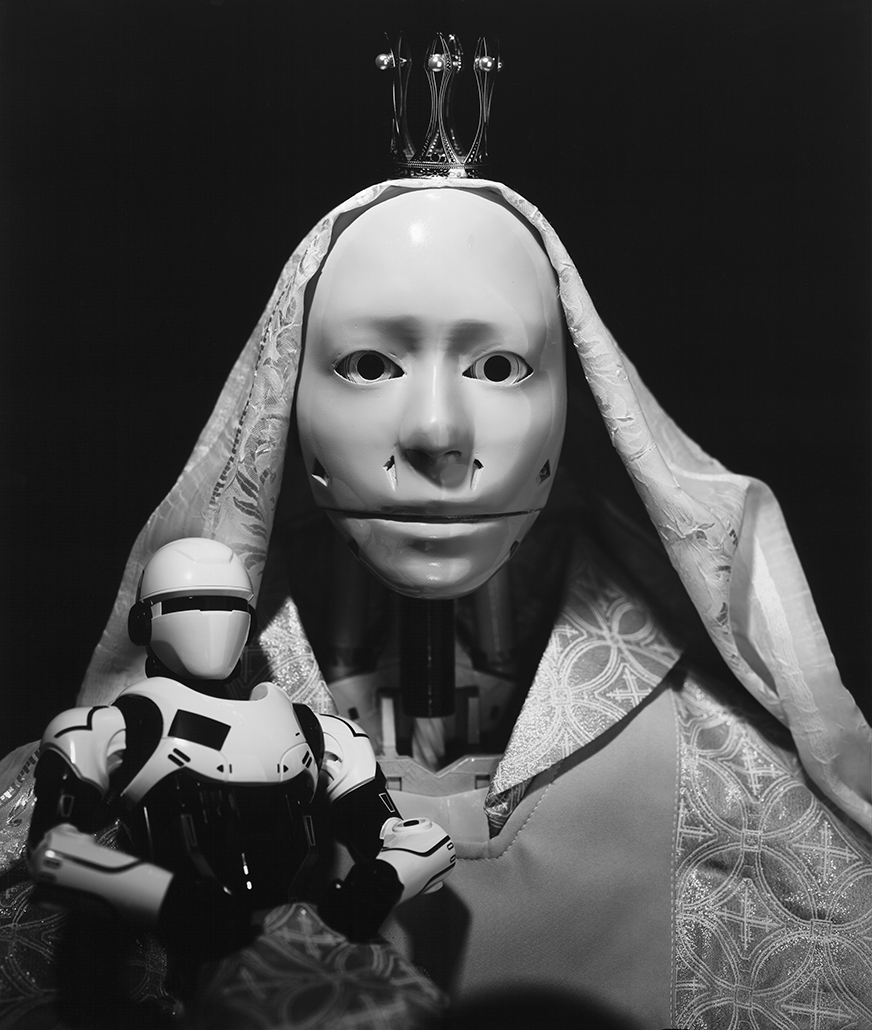AI-Robot – Artificial Intelligence Series
The increasing use of AI offers numerous potentials. However, it also stirs up fears and is scary for some people. The series “AI-Robot – Artificial Intelligence” deals pictorially with some aspects of this topic. (Analog photographs using the Klimsch Praktika Reproduction / Process camera, image format 20×24 INCH)
AI-Robot – Humanoid Robot
In the future, robots are expected to help, for example, in nursing or for loneliness, and to be used as service staff in restaurants. When these robots have a humanoid appearance, people even develop a certain empathy for the machines. But the feeling quickly changes if the machines look too human. This phenomenon, known as “Uncanny Valley,” states that robots appear more sympathetic the more human-like they are – but only up to a certain point. A resemblance beyond that point is perceived by many people as creepy or eerie. This only changes again when a robot is no longer distinguishable from a human.
AI-Robot – Self-Portrait
An AI-based computer system, having learned the painting styles of the “great masters,” can render any image given to it in the painting style of a particular artist. It is also possible to tell the system what should be seen in a picture and then have it reproduce it in the painting style of a particular artist. The AI system is also able to develop a new style by mixing different learned painting styles, but always based on the learned painting styles. However, the AI system (as of 2021) cannot develop its own “signature”, a new style that has not been seen before, or a new image idea.
AI-Robot – Love
Emotions such as fear, joy, sadness, or being in love, which are connected with certain facial expressions or physical reactions, can be learned by AI systems through pattern recognition. AI systems have no emotions of their own, but can display the emotions they have learned. For real feelings of their own, however, they lack the biochemical, hormonal processes that occur in a human body, during an emotion (as of 2021). That humans can develop strong emotional bonds with robots or machines of all kinds is well known. The progressive development of sex robots is controversially discussed among experts and ethicists.
AI-Robot – Drugs
Humans consume drugs to relax, expand their consciousness or increase their performance. AI systems cannot experience the effects of drugs themselves because they do not have a biochemical central nervous system that is affected when drugs are consumed. For example, if a robot were designed to consume drugs, it would still be a purely mechanical action without the consciousness or experience that humans associate with the consumption of drugs. It would merely be a simulation and not an authentic experience as the “brain” of the AI is based solely on data and algorithms.
AI-Robot – Religion
Robotics expert and former head of Google subsidiary Waymo, Anthony Levandowski, founded a church in 2015 that worships an artificial intelligence as a deity. The approach is that in the not-so-distant future, the computing power of computers, and thus artificial intelligence, will increase so exponentially that it will be godlike. An artificial intelligence that solves all problems and worries for us and ultimately thereby a paradisiacal state. The transfer of our mind to a computer enables us to live forever and milestones on the way to divine hyperintelligence are revered like prophets. In 2020 Levandowski dissolved “Way of the Future” again.
AI-Robot – Grace
An “image of grace” is a representation of a saint from whom the faithful ask God’s grace. They are mainly Illustrations of Mary with the baby Jesus. An AI has no consciousness of its own and shows no understanding. The artificial intelligence has no mind. An AI does not know values such as tolerance, honesty, justice or grace. Will an artificial hyperintelligence come to the result to destroy mankind and does it then make sense to ask this hyperintelligence for grace?
These photographs are scans of the 50 x 60 cm (20×24 Inch) large originals, photographed on black & white positive photo paper. But they do not reach the visual aesthetic preserved in the original photographs. Price for a limited unique Still-Life on request.
Note: All images are protected by German Urheberrecht ©.
Note: All images are protected by German Urheberrecht ©.
Josef Dreisörner – Photographic Art
c/o Dreisörner Werbeagentur GmbH
Kaulbachstr. 61, 80539 Munich, Germany
+49 89 688 6778
info@josef-dreisoerner.de

